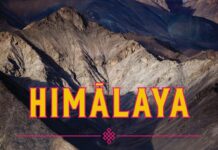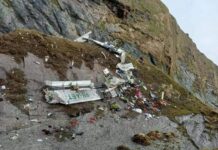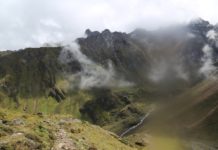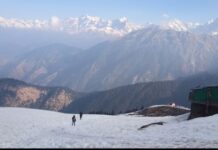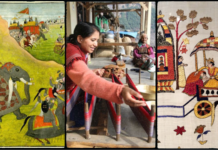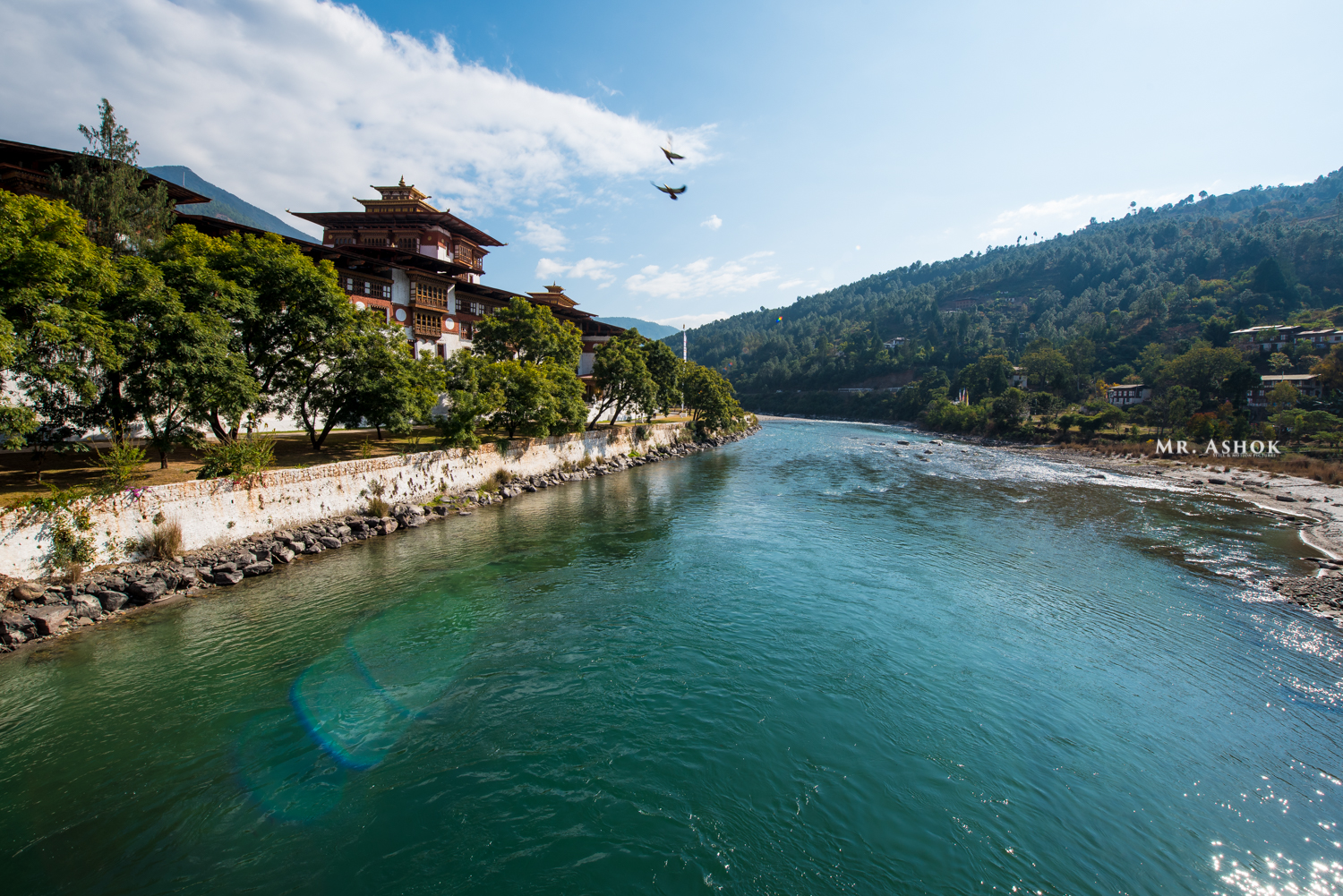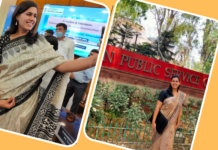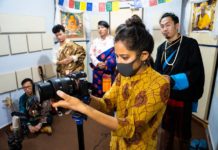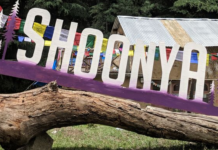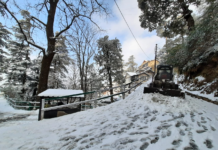
Minus degrees temperature, no table or chairs, books in a language you barely comprehend and teachers who struggle with the lack of resources but still give it their best. Sounds like an ideal school? It might not. But this is the story across hundreds of tiny Govt. Schools in the remote villages of high altitude Ladakh. These schools lack in infrastructure, resources, well-trained teachers, exposure and a lot of the many things we take for granted. But what they have is the sheer determination and enthusiasm to get educated. The parents are desperate for their children to be well educated whatever their economical background might be, leading them to send even children as young as three years old to faraway cities to study. It is education versus everything they know life to be as.

But all this changed when a trekker unaware of her destiny visited Leh for the first time. A US returned corporate techie turned school teacher, Sujata Sahu was only taking a break at her husband’s insistence when she took a solo-trek to Leh. The complete isolation and remoteness of the land and the simplicity of the local people surprised her, but what blew her mind was a chance encounter with two ladies travelling to Leh. It turned out they were teachers in a school who were traveling to Leh to get their students mid-day meal supplies and uniforms. On reaching this school she found out it is a school comprising only three teachers, two of whom have gone to Leh, and six students from a first grader to an eighth grader. They didn’t have the luxury of any art tools, playing facilities or even books they could comprehend. It is then that the grave alienation of the region and its effect on the young generation struck Sujata.
Upon returning she looked for some resolution for these children and that is the time the Ladakh floods, 2011, happened. It was the signal that put the wheels into motion as Sujata with her husband, Sandeep and their Ladakhi friend, Dawa Jora set out on a mission to support seven schools of the region. Carrying 1500kg of school equipment on 25 horse backs over 3 mountain passes to a height of 17000 ft. at -25 degrees Celsius they met the sight that shaped the foundation, 100 eager smiling children waiting for four hours to welcome them. The three then set about to found 17000 ft Foundation, a Nonprofit that aims at creating a learning environment for its students that best suits them and their surroundings overcoming any geographical or social barrier that has affected them for centuries. Even the staff and crew of the organization work all twelve months to ensure that the children have a healthy and happy learning environment and are not denied any opportunity given to children in the more urban or accessible areas.
Inspired by another organization in Karnataka, Akshara Foundation, 17000 ft. established a crowd-sourced software platform, MapMySchool@17oooft, marking all the schools in Ladakh including government schools, monastery schools and private schools. It was a total sum of 963 schools in Leh and Kargil and to their surprise each school was functional with hard-working teachers and enthusiastic students. Through this program the details of all the schools with their critical resource requirements have been recorded and the interventions of the organizations have been planned accordingly. It also puts the schools on a travelling map and so much more approachable for any interested trekker or traveler to contribute during their travels.

The organization has programs for Libraries, Teacher Training, Infrastructure improvement, DigiLabs facilitating schools over 65,000 sq.km. Its Library Program adopted by the Department of Education across all 270 Government schools has impacted 8,000 children. In 2015 as a gift on Children’s Day, the NGO achieved a milestone by translating and printing 21 popular titles of English story books into the local language, Bhoti, and distributing them free of cost across 300 schools in Ladakh. Keeping their promise to create holistic learning spaces for the children, the Foundation has already setup colourful playgrounds in 140 schools, many of which took them days of long travel and treks to reach. What made this effort even more memorable was the enthusiasm and support shown by 10,000 villagers who came out in full force to help dig, cement and install the beautiful playgrounds for their children’s’ schools.
In 2017 it collaborated with UNICEF for the one year Child Friendly School Program creating happy learning spaces for children in 99 schools of the Leh district. It is also working to improving Angadwadi Centres that are Model Early Childhood Education Centres in villages to create a safe, supportive learning environment for young pre-school children based on child friendly school systems of which 40 of them are already established.
Working in hundreds of villages and schools which barely have roads, electricity or mobile connectivity or even basic infrastructure, trying to bring digital learning to these schools seemed a distant dream, but dream they did, and in the last year, they finally embarked on their most ambitious project, the DigiLab. Today 120 village schools of Leh and Kargil can boast of going Digital. The Foundation has electrified and digitized 120 schools by providing solar energy, tablets, T.Vs and customized digital content for the children to learn better.
Today, thanks to 17000 ft, hundreds of villages have been put back on the map, through their volunteerism Program, a program that encourages travelers to contribute during their vacations, and volunteer in the work of the NGO. This also acts as revenue to meet the back-end expenses of the foundation. The NGO looks for willing travelers who can stretch themselves out of their comfort zone, stay with a local family in a remote village and help run their Library and DigiLab Programs in these tiny, remote schools of Ladakh. Over 350 volunteers have already worked with the Foundation and carry the story of remote Ladakh back to the rest of the world.

Over a span of six years 17000 ft Foundation has affected about 38,000 students and exposed 100 villages to tourism. In 2015, the founder Sujata Sahu, received the honorary “Nari Shakti (Women’s Empowerment) Award” from the then President, Dr. Pranab Mukherjee. It has come a long way, but the goal is yet to be reached and with its deep faith they are ready to take on any challenge.



